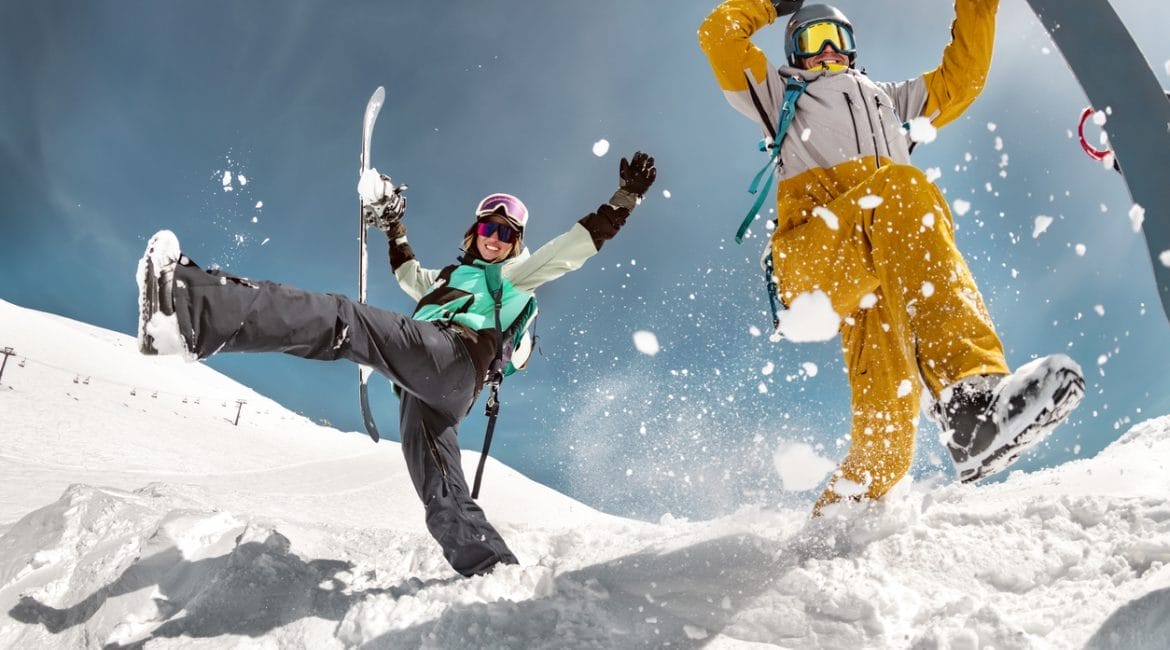The off-season provides a unique opportunity for triathletes to recharge, recover, and refocus their training efforts. While taking a break from specific triathlon training is essential, maintaining fitness levels is equally crucial. This is where cross-training activities come into play. Triathletes can enhance their overall performance while nurturing their bodies by incorporating activities like hiking, yoga, swimming, or cycling. In this blog post, we will explore various cross-training activities and how they can benefit triathletes during the off-season.
Hiking
Hiking is a fantastic way for triathletes to engage in low-impact cardiovascular exercise while enjoying the beauty of nature. It helps build muscular endurance, particularly in the legs, as triathletes traverse different terrains. Hiking also promotes mental well-being, reducing stress levels and providing a refreshing break from the monotony of their regular training routines.
Yoga
Yoga offers a multitude of benefits for triathletes, both physical and mental. This ancient practice focuses on flexibility, balance, and core strength, which are integral to performing well in all three triathlon disciplines. By incorporating yoga into their off-season routine, triathletes can improve their range of motion, prevent injuries, and enhance body awareness. Additionally, the mindfulness aspect of yoga aids in relaxation, stress reduction, and improved breathing techniques, all of which contribute to better race-day performance.
Swimming
While swimming is an integral part of triathlon training, it can also be a valuable cross-training activity during the off-season. Swimming serves as a low-impact yet highly effective form of cardiovascular exercise. It engages the entire body, strengthens muscles, and improves endurance without placing excessive stress on joints. Engaging in regular swimming sessions allows triathletes to maintain their cardiovascular fitness, refine their technique, and provide a much-needed break from the high-impact nature of triathlon training.
Cycling
Cycling is another popular cross-training activity for triathletes during the off-season. It provides a great cardio workout while minimizing the impact on joints. Cycling helps improve leg strength, endurance, and overall aerobic capacity. The variation in terrains, such as hills or intervals, allows triathletes to tailor their workouts according to their specific needs. Additionally, cycling can be a fun and social activity, providing a change of scenery and a break from the solitary nature of triathlon training.
Skiing/Snowboarding
In addition to hiking, yoga, swimming, and cycling, skiing and snowboarding are excellent cross-training activities for triathletes during the off-season. While they may seem different from the typical triathlon disciplines, these snow sports offer unique benefits that can enhance a triathlete’s performance and recovery.
Strengthens Muscles: Skiing and snowboarding engage various muscle groups, particularly in the legs, core, and upper body. The dynamic nature of these sports requires constant muscle contractions for balance, stability, and maneuvering on the slopes. As a result, triathletes can develop stronger muscles that contribute to improved performance in running, cycling, and swimming.
Cardiovascular Workout: Skiing and snowboarding are physically demanding activities that get the heart pumping. They involve continuous movement and exertion, which boosts cardiovascular fitness and endurance. Regularly participating in these snow sports during the off-season helps triathletes maintain their aerobic capacity while giving their bodies a break from the repetitive motions of triathlon training.
Mental Focus and Balance: Both skiing and snowboarding require concentration, focus, and balance. Triathletes can benefit from honing these skills as they navigate varying terrains, adapt to changing conditions, and make split-second decisions on the slopes. Developing mental acuity and balance through skiing and snowboarding can translate to improved coordination and stability in the triathlon disciplines.
Low-Impact Activity: While triathlon training can be high-impact and put stress on joints, skiing and snowboarding provide a welcome change by being low-impact activities. The soft snowy terrain absorbs much of the impact, reducing the strain on joints and minimizing the risk of injuries. This makes skiing and snowboarding ideal for triathletes looking to give their bodies a break while still engaging in challenging physical activity.
Enjoyment and Mental Refreshment: Engaging in winter sports like skiing and snowboarding can be a refreshing change for triathletes. The joy and excitement of gliding down the slopes and experiencing the beauty of snowy landscapes can rejuvenate the mind and provide a mental break from the intensity of triathlon training. This renewed enthusiasm can lead to increased motivation and dedication when returning to triathlon-specific workouts.
Cross Training
Incorporating skiing and snowboarding into the off-season cross-training routine can offer triathletes a range of benefits. These winter sports provide strength, cardiovascular exercise, mental focus, balance training, and low-impact activity.
Cross-training activities offer triathletes a multitude of advantages during the off-season. Engaging in activities like hiking, yoga, swimming, or cycling not only helps maintain overall fitness levels but also provides mental and physical rejuvenation.
By incorporating these activities into their training routine, triathletes can enhance their performance, prevent burnout, reduce the risk of injuries, and cultivate a more balanced approach to their sport. So, when the off-season rolls around, don’t hesitate to explore the benefits of cross-training. Your body and mind will thank you when race day arrives!

